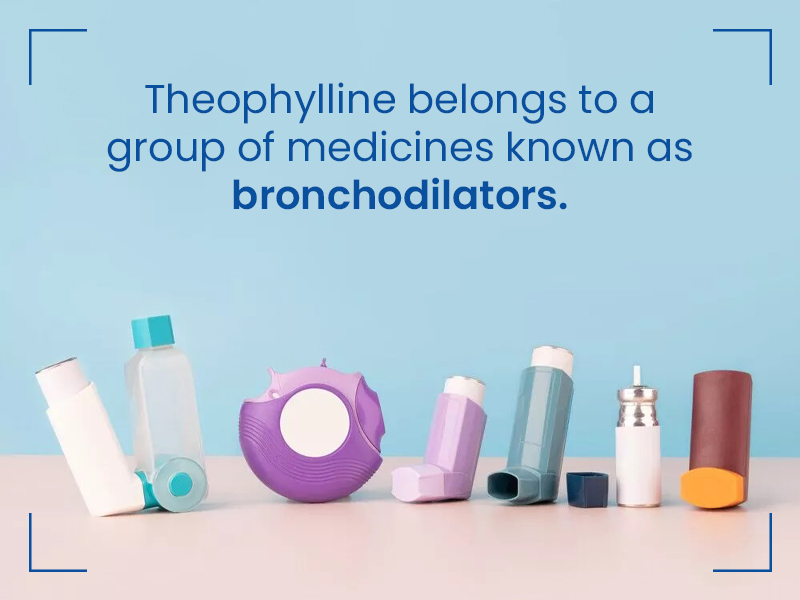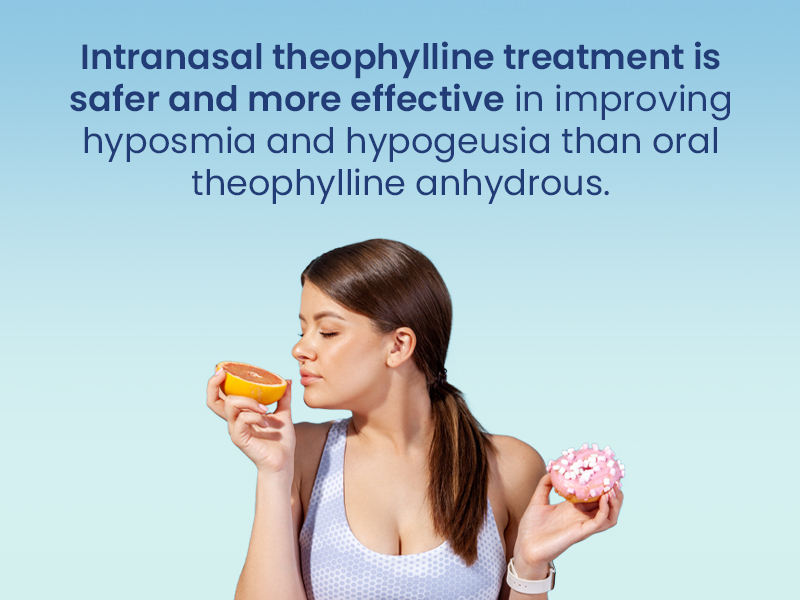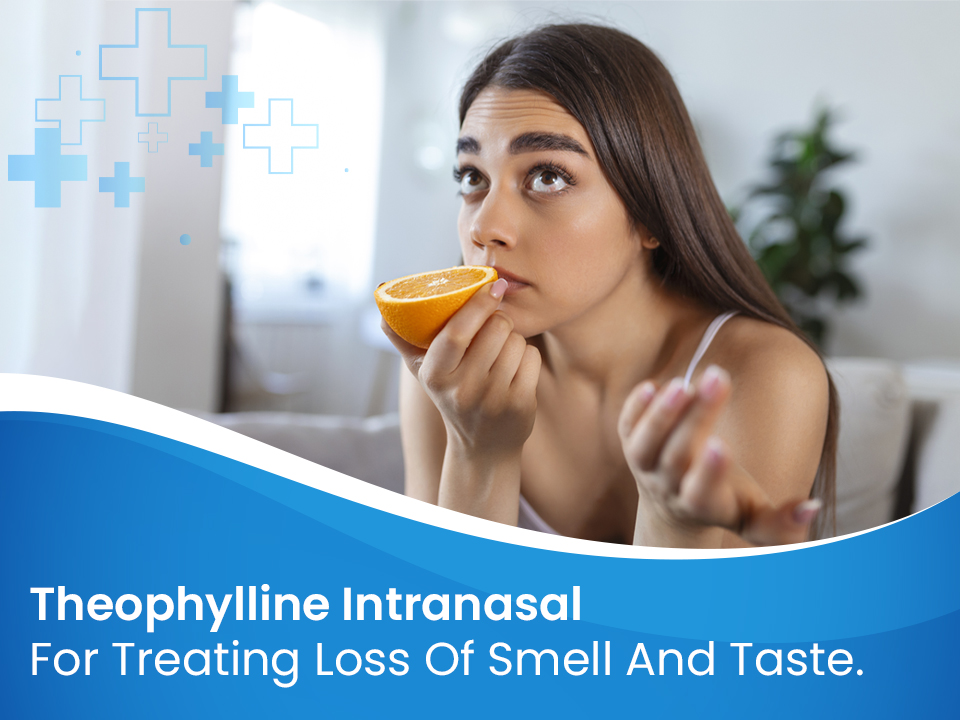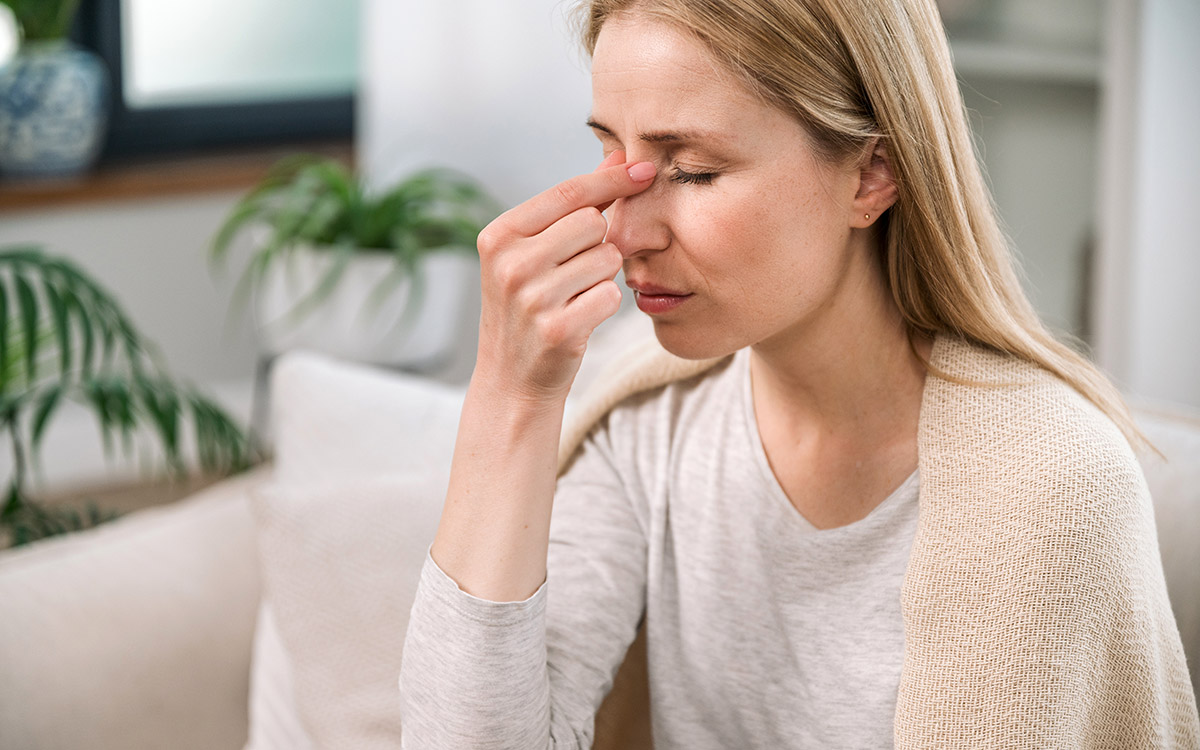Theophylline is a medication that was first developed to treat asthma. It’s a methylxanthine, which includes caffeine and theobromine, both of which can be found in coffee, cocoa, and tea. Theophylline, on the other hand, is far more potent than these drugs. When administered intranasally, theophylline has been found to help those with olfactory impairment improve their sense of smell. Many patients that recovered from COVID have an altered sense of smell that will not go away once the other symptoms have subsided, rekindling an interest in this medicine. A theophylline-based nasal spray is now being developed into a commercially-available commercial medicine. A compounding drugstore can create it with a prescription until it becomes an FDA-approved medicine.
What’s Causing Your Loss of Taste and Smell?
There are several possibilities for the cause. A change in taste or smell might be an early symptom of another ailment in some situations. Many who have a taste issue get an olfactory impairment. The following are some of the most common factors of loss of smell and taste.
- Age
- Nasal congestion or obstruction
- COVID-19
- Concussion or head injury
- Hormone changes
- Conditions of the brain or nervous system
- Chemicals, smoking, and drugs
Read More: Sinus Headaches? Important Facts You Should Know
Loss of Smell Varies by Degree and Type
Olfactory impairment can vary by severity and form. Symptoms might range from a total loss of smell to a partially or significantly impaired sense of smell.
- Hyposmia is a condition in which one’s capacity to smell is impaired.
- Hypogeusia is a condition in which one’s capacity to taste is impaired.
- Dysosmia is a change or distortion in one’s sense of smell.
- Anosmia is a condition in which the ability to smell is wholly lost.
Once hyposmia is detected, the odor sensitivity level stays the same. This means that medication can begin at any moment and is not required to start at the very same time as the loss of scent.
COVID is characterized by a rapid loss of the sense of smell. Despite the disappearance of other symptoms, olfactory impairment can persist after recovery in some cases. Most patients will regain their sense of taste and smell on their own. Although the data isn’t clear, it’s believed that 10 – 15% of patients will continue to lose their sense of taste and smell after they recover.
Theophylline

Theophylline is a PDE inhibitor that has been used to treat asthma and chronic obstructive pulmonary disease (COPD) in the past. The substance is present in tea, coffee, & chocolate and is related to caffeine. It was discovered in the late 1800s and harvested from tea leaves for the first time. One of the results of caffeine metabolic degradation in the liver is a small amount of theophylline. It treats lung illnesses by relaxing the muscles surrounding the airways, allowing them to open up and facilitate breathing. Theophylline has lately sparked interest as a therapy for hyposmia & hypogeusia. This is mainly due to the high prevalence of olfactory and gustatory impairment following COVID recovery, but the study has been underway for several years.
Theophylline For Hyposmia And Hypogeusia
Theophylline, taken orally, has been shown to help in hyposmia. However, like most orally delivered drugs, theophylline has specific adverse side effects. That isn’t to say that topical and intranasal drugs don’t have adverse effects; they do, but they’re usually milder because of the lack of systemic effects. Restlessness, gastrointestinal discomfort, sleep problems, tachycardia, and other undesirable symptoms may occur when theophylline is used orally.
Oral treatment may be unpleasant because extended use is generally required to detect a reduction in symptoms. However, other than moderate nasal discomfort, there have been minimal reported adverse effects with intranasal treatment. Patients who take theophylline intranasally have lower blood levels of insulin.
Furthermore, some investigations have found that nasal theophylline is more effective at increasing the sense of smell than oral theophylline. In one study, six individuals reported an improvement in general taste and smell function after taking oral theophylline, while four patients reported no change. Eight of ten patients reported general improvement in taste and smell functions after nasal theophylline treatment, while two patients reported no change. An interesting finding from this study was that patients who reacted well to treatment gained a small amount of weight, which was most likely due to the higher enjoyment of food due to improved taste and smell.
Subjective improvement in smell, flavor, and taste was seen in 65% of patients only after four weeks of treatment in another trial of 94 individuals. Patients improved much more as their treatment progressed.
Read More: What Could Be Causing Your Neck Pain & How Can You Relieve It?
Compounded Intranasal Theophylline

For the treatment of hyposmia and hypogeusia, our pharmacy makes theophylline capsules that are utilized with a nasal atomizer. The atomizer diffuses medication more evenly than just a nasal spray container, while capsule storage keeps medication more stable.
You get the following benefits with 60 theophylline capsules:
- There’s a 60-day supply available for twice-a-day use.
- There’s a 30-day supply available for once-a-day use.
Theophylline can improve the sense of smell in as little as 4 to 6 weeks after starting treatment, although it can take months and even years for other people. Treatment is frequently continued after the senses of taste and smell recover to sustain the outcomes.
The Rhino Clear Sprint atomizer is a battery-operated device that delivers medication directly into the nasal passages. It has a discharge chamber and a 15mL atomization flask. You can have your medication and the atomizer shipped simultaneously from the pharmacy.
Treating Loss of Taste and Smell
A Theophylline nasal spray for loss of both taste and smell is presently under investigation. However, the existing research is encouraging and the incidence rate of adverse effects makes it a viable alternative for people with olfactory impairment. Patients with COVID-related loss of taste and smell may fall into this category. While this medication may become available at the local retail pharmacy in the coming years, you can get it now by using a compounding pharmacy.
The Bottom Line
Theophylline is a drug that is used to treat issues related to loss of smell and taste. It can be administered intranasally, making it an ideal treatment option for those experiencing symptoms. This medication targetings the underlying causes of these conditions, such as inflammation or damage to the sensory nerves in the nose or mouth. The effects of theophylline are generally fast and effective, helping patients to regain their sense of smell and taste promptly. If you’re experiencing problems with your sense of smell or taste, talk to your doctor about whether theophylline may be right for you. Knowing the potential risks and benefits of this treatment option is essential.
Do you need more information or guidance on how you can benefit from our compounded medicines in cases of loss of smell and taste?
Our highly-trained pharmacists are here for you if you have unique medical needs that commercially-manufactured medications can’t address. With our compounding service, you can get access to alternative dosage forms, discontinued medications, and allergy-friendly options. At King’s Pharmacy and Compounding Center, we want what’s best for your health and will work to find the right solutions for you. To learn more, visit https://kingspharma.com/










